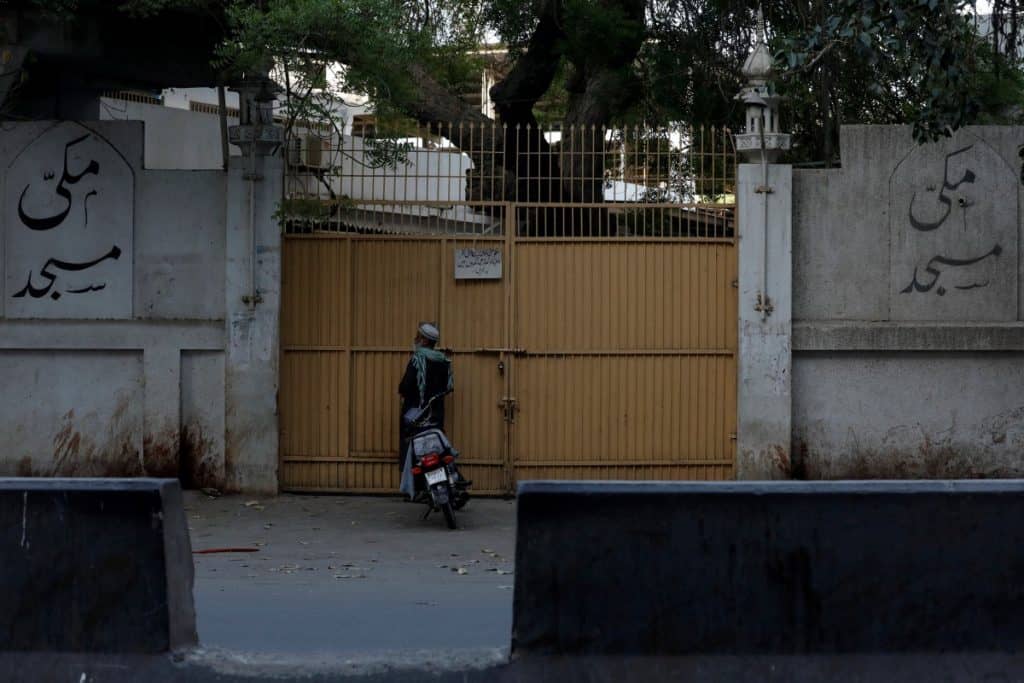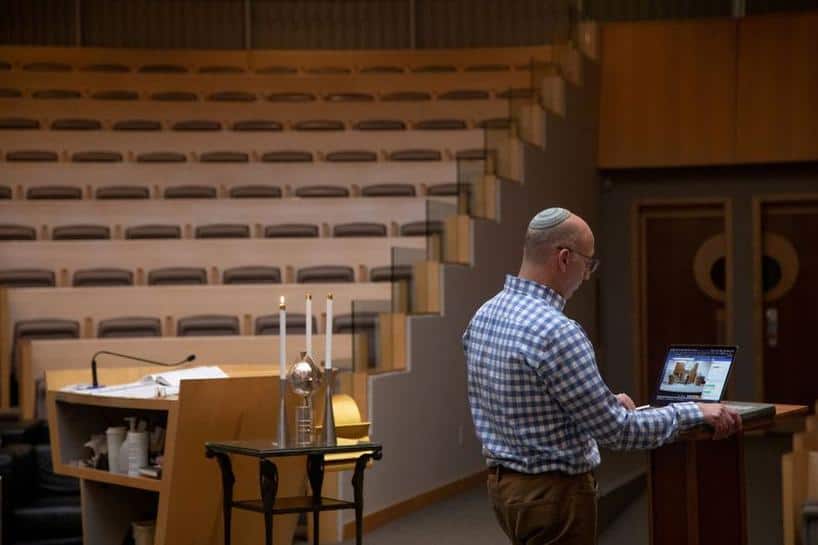
The author, a former diplomat, holds the Ram Sathe Chair for International Studies, Symbiosis International University, Pune, and is Consulting Editor, The Wire. Siasat.com is reproducing his article from The Wire. For the convenience of the readers this exhaustive exposition has been divided into three parts. Part One of the article was carried on these pages on April 19 (Saturday). Here we present the Part Two.
The pandemic has been used cynically to demonise Muslims and scapegoat them for the calamity, just as Blacks in South Africa were blamed for the Spanish Flu and the Jews in medieval Europe for the plague.
Congregations of the Tablighi Jamaat have contributed most to spreading COVID-19 in South and Southeast Asia. This hundred-year old movement originated in India to spread the teachings of Islam and the correct fulfilment of religious rituals. It does this through itinerant teachers who are known for their personal austerity and commitment. The movement eschews both proselytising and politics. While most of its outreach is at local levels, the Jamaat has annual assemblages in different countries that bring all its members together in one conclave.
This year these conclaves took place just as the pandemic was spreading. In Malaysia, in early March, a 16,000-strong gathering over four days created what New York Times’ writer Hannah Beech has called “the largest known viral vector in Southeast Asia.” By 20th March, over 600 participants had tested positive in Malaysia, while 73 cases were discovered in Brunei and 10 in Thailand.

The largest gathering of the Jamaat was at Raiwind in Pakistan, which 250,000 persons from 90 countries attended; it continued for a few days before being called off. By end-March, cases of infected persons proliferated in Pakistan, with a number of foreign participants taking the infection back to their countries. A Pakistani writer, Naila Inayat, has reported that there has been resistance to government advisories against religious gatherings and close contact after prayers; the query the opponents pose is: “what else are you willing to give up just to save your life?”
In Delhi, a conclave of the Jamaat took place on 13-15 March; after the conclave, about 2000 persons were found staying together at the Jamaat headquarters, in violation of Delhi government orders prohibiting large gatherings. There were reports in early April that hundreds of the over 6000 confirmed infections in India are linked to the Jamaat conclave. The government has sealed the headquarters of the Jamaat; hundreds of participants in the congregation have been traced and are being quarantined.
Responses to the pandemic
COVID-19, with attendant self-isolation, social distancing and lockdowns, has severely restricted the communal and congregational aspects of all faiths. Most churches, mosques, temples and gurudwaras across the world have closed their doors, signifying the ascendancy of health and safety over collective interaction with the Almighty. In a unique development, Saudi Arabia has banned the arrival of foreign pilgrims for umrah and has also restricted prayers at the holy mosques of Mecca and Madinah. To prevent people from touching the sacred stone at the Mecca mosque, a barrier has been erected around the Kaaba.
There are indications from Saudi authorities that the forthcoming Hajj could be suspended this year. Iran banned Friday congregational prayers on 4th March, after which, in most countries, congregational Friday prayers have been suspended, with worshippers encouraged to pray at home; Friday sermons are being offered online.
To prevent large gatherings, the pope has ended his personal messages on Sundays and is now live-streaming them. In churches where services are still taking place, there have been important changes in ritual. During the Catholic mass, priests are placing the wafer in the people’s hands rather than on their tongues and are no longer giving wine in the shared chalice. Priests are recording their sermons on video; the message from them is: “Because I am not physically close to you, it doesn’t mean I can’t be emotionally close to you.” Or, as another priest has said: “let social distancing not become social isolation.”
Most Hindu temples and Sikh gurudwaras in India have either shut down or restricted access to devotees. The cooking and distribution of prasad has also been stopped in most places.
Services in Jewish synagogues have gone online, while people have been advised not to kiss the Torah. There has been a debate in Israel relating to use of social media in connection with the Passover, an eight-day holiday marking the exodus of the Jewish people from Egypt to the “Promised Land” of Israel. It commences with the Seder, a large gathering of family members around a table, sharing song, prayer and a meal.

With the lockdown and ban on gatherings, digital Seders have been approved by one set of the clergy, particularly since they would give the lonely and the elderly a sense of companionship. However, Orthodox clergy see video-conferencing as “desecrating the holiday”, insisting on upholding religious law over the prevailing social situation.
There has been criticism in the Israeli media that ultra-orthodox Jews have flouted the rules relating to self-isolation so that the spread of the virus among them is far greater than in the rest of the country. One of their leaders has claimed that “cancelling Torah study is more dangerous than corona.”
Spiritual guidance
Clerics of different faiths have attempted to make up for the absence of congregations through a focus on the premier aspect of faith – a spiritual link of the individual with the divine. As one American newspaper headlined: “It’s still religion even if you’re not congregating in person.”
Many clerics have directly addressed the age-old assertion that the pandemic is an expression of the wrath of God; among some Muslims the sins being punished include consumerism, personal excesses and damage to the environment. Muslim clerics have clarified that, while the origin of the disease might not have been under human control, its spread certainly is; they quote the Prophet’s saying exhorting a man to protect his possession first, then trust in God: “tie your camel first and then trust in Allah.”
Again, in response to the fatalist view relating to disease and death as part of God’s plan, another of the Prophet’s sayings is quoted: “God has not made a disease without appointing a remedy for it, with the exception of one disease – old age.” The Prophet had also backed quarantine and social distancing; he said: “If you hear of an outbreak of plague in a land, do not enter it; if the plague breaks out in a place where you are, do not leave the place.”
Christian writers have also addressed the unprecedented dangers, restrictions and fears that their co-religionists are confronting today, highlighting the need to protect human life, respect human rights, protect the poor and vulnerable, and display solidarity and subsidiarity, ie, shoulder responsibility at appropriate levels. Others have looked at the implications of social distancing on the social fabric and advocated emotional and spiritual support for the isolated.
In established biblical tradition, some parishioners have asked their clerics if the pandemic heralds the “end times” and the “second coming.” The internet has even thrown up the prediction of a religious scholar in 2008 that “in around 2020, a severe pneumonia-like illness will spread throughout the globe … resisting all known treatments.”
The general conclusion is that, while there are no “end signs” just yet, the pandemic is a reminder to humankind to pursue a life-changing path that would take us closer to the “throne of grace” and the gift of eternal life.
In a unique display of trans-denominational solidarity, Mohammed bin Abdulkarim Al-Issa, the head of the Jeddah-based body, the Muslim World League, met Pope Francis at the Vatican at the end of March. In public remarks, he highlighted the need for “interfaith partnership” and affirming intellectual and spiritual proximity during this critical period.
Voices of dissent and extremist politics
Not all clerics have welcomed the restrictions on congregations and public worship. Contrary to changes adopted by the Catholic clergy, the Greek Orthodox Church has refused to give up its practices relating to wafer and wine and uses the same spoon for worshippers. Its ruling body had declared in early March: “For the members attending the Holy Eucharist … [it] certainly cannot be a cause of disease transmission.”
To be continued

